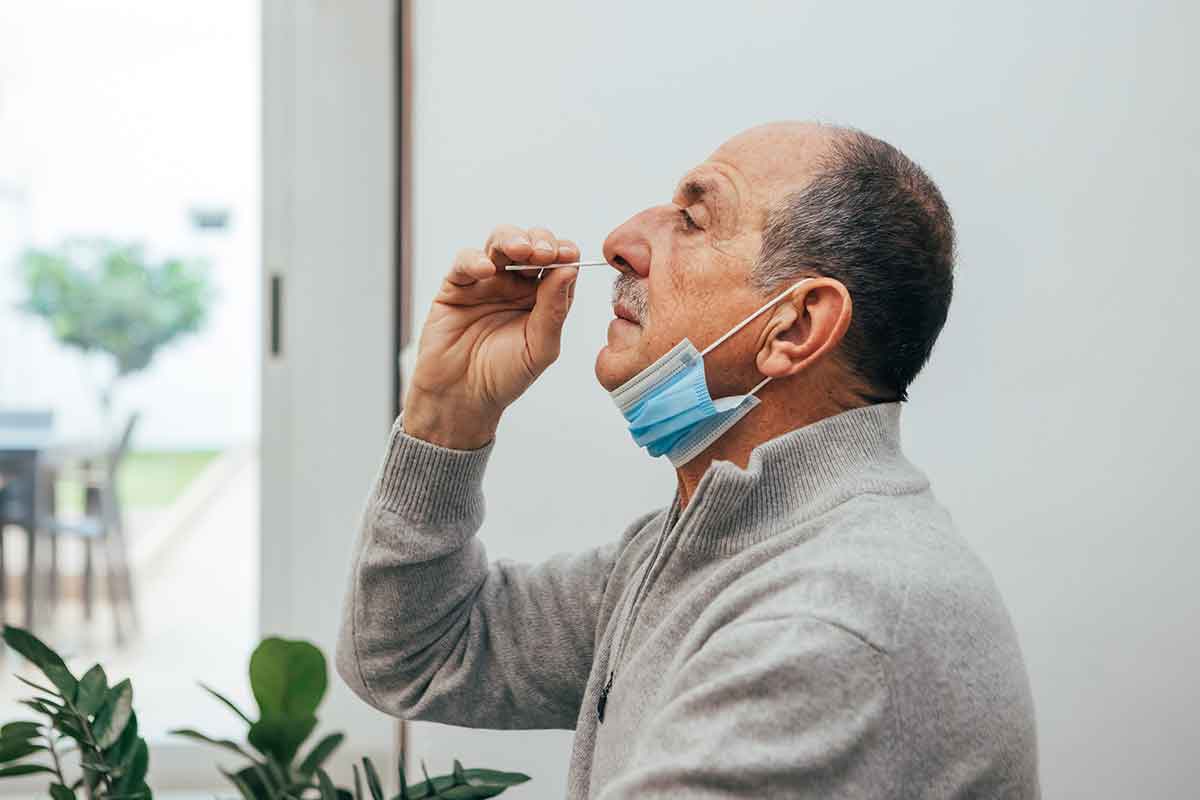
Oct 27, 2022
Blog Life Sciences What does the future hold for the self-testing kits Industry?
It goes without saying that the pandemic forever changed the face of global self-testing. What was once the reserve of those with specific needs and conditions became an activity that required the dutiful participation of entire nations. The process began: people watched videos on how to swab their nostrils and throats, while others queued for a slot in drive-thru self-test sites. Armed with the science of self-testing kits, the world fought the rise of a lethal virus, and the market for these kits soared.
Although the Covid-19 pandemic has loosened its iron grip on the world, the market for self-test kits remains strong. BCC Research has predicted that the market will continue to expand, reaching heights of $64.5 billion by the end of 2027.
Before the onset of Covid-19, growth within the self-testing kits market was linear. But since the virus’ conception, a whole new space within the market emerged. Rapid antigen home-testing kits were pioneered as a key weapon in fighting the novel coronavirus. Their introduction was designed to help stop the spread of Covid-19 in its tracks, as part of a preventative approach to healthcare. Before the rapid antigen kits were widely available, people (including the elderly and vulnerable) were forced to attend hospitals and specialist clinics to test for Covid-19. This was both costly and counterintuitive, given the widespread stay-at-home guidelines. Thankfully, the emergence of self-test kids offered a practical solution to this problem.
At the time of writing, the total cumulative number of Covid-19 cases as recorded by WHO is 624,235,272 (October 2022). This sheds some light on the sheer scale of the market that self-testing kit manufacturers were catering to. A lack of preparation, limited access to resources as well as supply chain disruptions meant self-testing kits were not always in abundance. With some exceptional operation challenges to reckon with, there was a delay in the availability of self-testing kits, but manufacturers continued to develop and design rapid antigen tests for Covid-19. This led to the birth of a sector of the market that became an overnight success.
The globe has stabilized considerably since 2020. Remote-working practices have been adopted, meaning resurgences of the virus haven’t been quite so devastating. As societies opened, most returned to a normal way of life. Many governments lifted their restrictions for self-testing – and for some, the virus nearly all but disappeared from their agendas. What does this mean for the self-testing kits market?
It’s important to remember that the entire market for self-testing kits wasn’t borne from the pandemic. People have used them for years for a variety of conditions, including pregnancy self-test kits, blood-glucose monitoring, and HIV rapid diagnostic tests. The market will not disappear, though the emphasis on Covid-19 self-testing will fade. This will inevitably slow growth compared to the rocket-like expansion of recent years. In fact, the blood-glucose self-testing market will witness the highest amount of growth.
OraSure Technologies, the developers of the InteliSwab Covid-19 rapid test, naturally experienced an onslaught of demand during the pandemic. Their HIV self-tests actually declined in this window in Southern and Eastern African countries due to logistics challenges. They’ve previously stated that the company’s operations, cash flow, and financial position would encounter turbulence as the virus subsides. It’s a safe bet that this downwards trend will impact all those with stakes in the Covid-19 self-testing market. But in the meantime, the market will remain strong, driven by significant growth from the blood glucose testing market.
The pandemic was effectively a global advertisement for the ease and accuracy of self-testing kits. The world became aware of the benefits these tools can offer – both to individuals and the greater state of healthcare.
What’s more, self-test kits form a part of a larger movement towards at-home care. By and large, patients prefer to access healthcare from the comfort of their homes. And for the elderly, disabled, or house-bound, having this option is a lifeline. As well as being cost-effective for healthcare providers, it also boosts the patient experience and provides promising outcomes for patients. The pandemic brought an increased awareness of self-testing for both patients and healthcare providers. Outside of Covid-19, a promising market for self-testing is developing.
BCC’s report on the self-testing kit market provides a comprehensive analysis of the various sectors of the market. This is an invaluable tool to help manufacturers, healthcare providers, and other stakeholders gain a leg-up in this increasingly competitive landscape.
Greater than this, BCC Research has an incredible catalogue of reports within the healthcare sector. By becoming a member of our library, you can gain access to this entire suite to help inform strategic and operational decisions. To discuss the benefits this membership can offer you, please get in touch through the button below. We’d love to chat.

Olivia Lowden is a Junior Copywriter at BCC Research, writing content on everything from sustainability to fintech. Before beginning at BCC Research, she received a First-Class Master’s Degree in Creative Writing from the University of East Anglia.
In today’s fast-paced biomedical world, researchers and pharmaceutical companies...

Radiopharmaceuticals represent a cutting-edge frontier in modern medicine, offer...

Implantable Remote Patient Monitoring (IRPM) devices are revolutionizing healthc...

We are your trusted research partner, providing actionable insights and custom consulting across life sciences, advanced materials, and technology. Allow BCC Research to nurture your smartest business decisions today, tomorrow, and beyond.
Contact UsBCC Research provides objective, unbiased measurement and assessment of market opportunities with detailed market research reports. Our experienced industry analysts assess growth opportunities, market sizing, technologies, applications, supply chains and companies with the singular goal of helping you make informed business decisions, free of noise and hype.